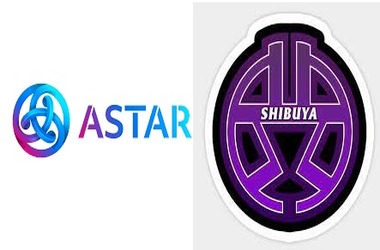
According to the release, Shibuya will utilize Astar’s skill with Japan’s major brands to build a Web3 plan and host complementing activities. Supported by Astar Network’s robust environment, the endeavor will focus on web3-centric Startup Support services in Shibuya. This was not their first encounter, as Shibuya will accommodate the headquarters building of Startale Laboratories, a Singaporean company established by Sota Watanabe, CEO of Astar Network. Startale Laboratories develops the essential dApps and framework for Astar’s WASM ecosystem, including wallets, financing, and NFT marketplaces. It offers business consultancy services centered on its knowledge of multi-chain covenant development and serves as the entry point for large businesses to connect with Astar Network.
According to Sota Watanabe, Shibuya is the biggest city for youth residents in Japan and the startup capital. It is referred to as Japan’s Silicon Valley, or “Bit Valley,” which is drawn from a place in Shibuya() by combining Bitter () and Valley (). We are proud to have established our work in this digital centre and to have inked a contract with the municipality to use web3.”
Astar Network is a Japanese conduit that connects layer-1 blockchains such as Ethereum and Cosmos to the Polkadot network. Interestingly, Shibuya Ward’s Web3 approach isn’t the initial time a Japanese behemoth has entered the blockchain realm or adopted Web3.0-focused technologies. Astar Network has already partnered with entertainment titan Sony, Japan’s leading mobile carrier NTT Docomo, and manufacturer Toyota to promote Web3’s widespread adoption and social usage.
The Astar-Sony collaboration debuted a Web3 Incubation Program devoted to the advancement of pertinent technologies, with a concentration on assisting promising firms in gaining initial momentum. Toyota is also investigating Web3 advancements to generate unique experiences that will ultimately be incorporated into specific proposals to enhance the company’s business.
NTT Docomo will commit up to $4 billion to futuristic internet technology in the course of the next 5 to 6 years in order to accelerate the development of Web3 in its home country of Japan. This is part of the company’s plan to become a market leader by leveraging its mobile framework.
Astar Network ran a mainstream newspaper advertisement in Japan in which 329 blue-chip companies participated, setting a fresh world record. The advertisement was a means of assisting the Japanese government and legislators in bringing the nation into the Web3 period. By now, Sota Watanabe, the chief executive officer of the network, is assisting the government and some of Web3’s major business actors on the way forward.